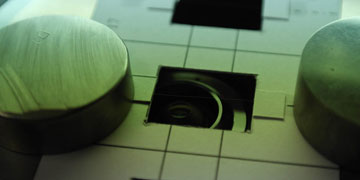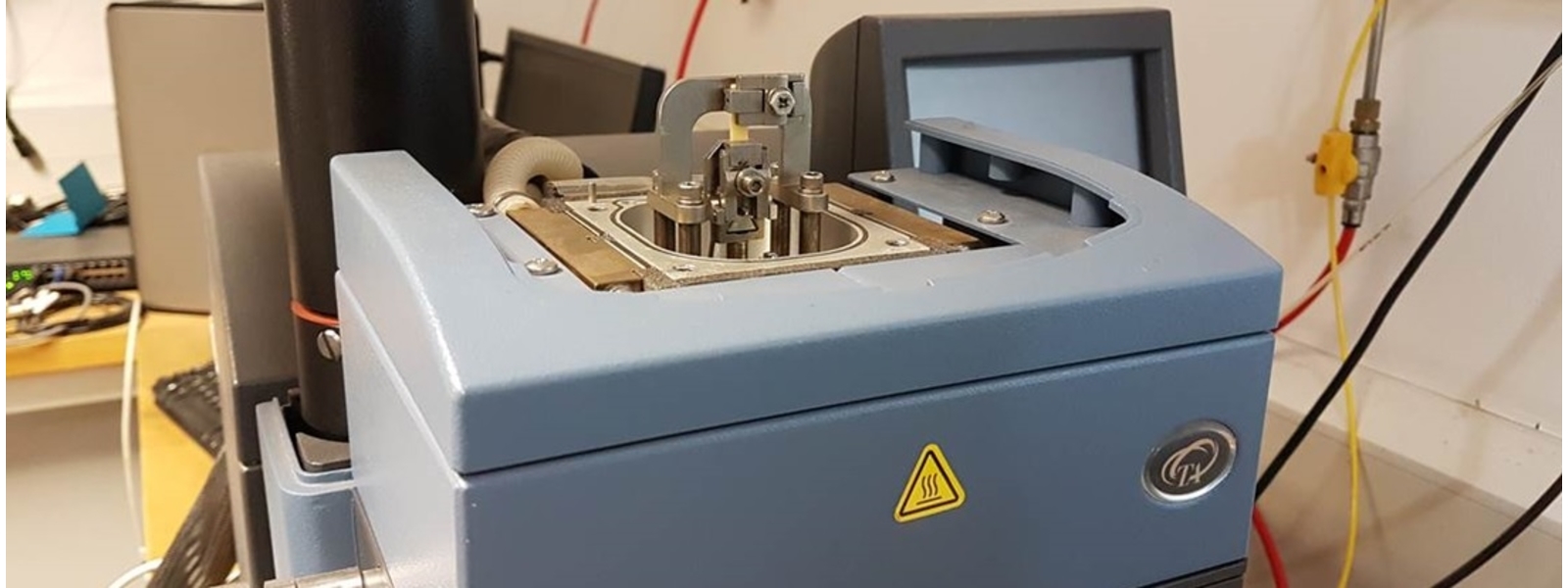
Advanced Composites GroupThermal Analysis
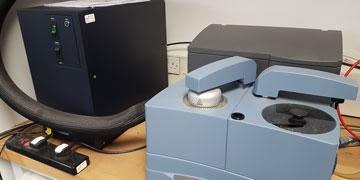
Differential Scanning Calorimetry
TA Instruments Q20
Differential Scanning Calorimeters (DSC) measures temperatures and heat flows associated with thermal transitions in a material. Common usage includes investigation, selection, comparison and end-use performance evaluation of materials in research, quality control and production applications. The properties that can be measured using DSC include glass transitions, "cold" crystallization, phase changes, melting, crystallization, product stability, cure/cure kinetics, and oxidative stability.
This DSC has a heat range from -85 to 725 °C. The system is equipped with an auto-sampler and has a maximum capacity of 50 samples. Further information about the capabilities of the Q20 DSC can be downloaded here: DSC Q20 brochure
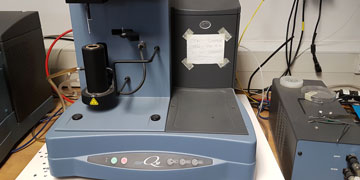
Thermogravimetric Analysis
TA Instruments Q50
Thermogravimetric Analysis (TGA) measures weight changes in a material as a function of temperature and time under a controlled atmosphere. Principal uses include measurement of a material's thermal stability and decomposition behaviour.
The Q50 operates over a temperature range from room temperature to 1000 °C. Further information about the capabilities of the Q50 TGA can be downloaded here: TGA Q50 brochure
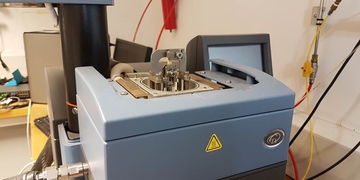
Dynamic Mechanical Analysis
TA Instruments Q800
Dynamic Mechanical Analysis (DMA) measures the mechanical properties of materials as a function of time, temperature and dynamically applied stress. The Q800 DMA instrument incorporates unique technology to provide the ultimate in performance, versatility, and ease-of-use. It operates over a wide temperature range (-160 to 600 °C) and provides multiple modes of deformation including dual/single cantilever and 3-point bending, tension, compression, and shear. The clamps are individually calibrated for data accuracy.
A relative humidity accessory is available for use with the DMA. This allows mechanical properties of a sample to be analysed under controlled and varying relative humidity and temperature simultaneously. Further information about the capabilities of the Q800 DMA can be downloaded here: DMA Q800 brochure
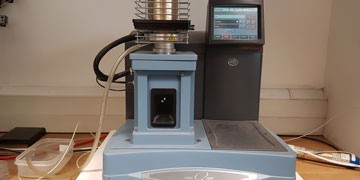
Thermomechanical Analysis
TA Instruments Q400
Our thermomechanical analyzer (TMA) measures sample dimensional changes under conditions of controlled temperature, time, force, and atmosphere. The Q400 offers all the major deformation modes necessary to characterize a wide range of materials such as solids, foams, films, and fibers. These include expansion, penetration, compression, tension, and 3-point bending.
The TMA operates over a temperature range from -70 to 1000 °C. Further information about the capabilities of the Q400 TMA can be downloaded here: TMA Q400 brochure
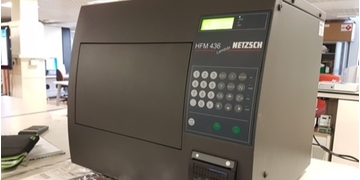
Heat Flow Meter
Netzsch HFM 436 Lambda
Our heat flow meter (HFM) allows us to quickly and accurately measure thermal conductivity of insulation materials. Samples measuring 30.5 x 30.5 cm or 61 x 61 cm and of variable thicknesses ranging from a few millimeters to 10 or 20 cm are tested between two heat flux sensors in fixed or adjustable temperature gradients. After a few minutes for the system to reach equilibrium, the HFM automatically computes the thermal conductivity and thermal resistance of the sample.
Further information about the capabilities of the HFM 436 Heat Flow Meter can be downloaded here: HFM brochure
Our capabilities can help further your research interests
Our research
Discover our areas of expertise in composites research - from the nano to the macro scale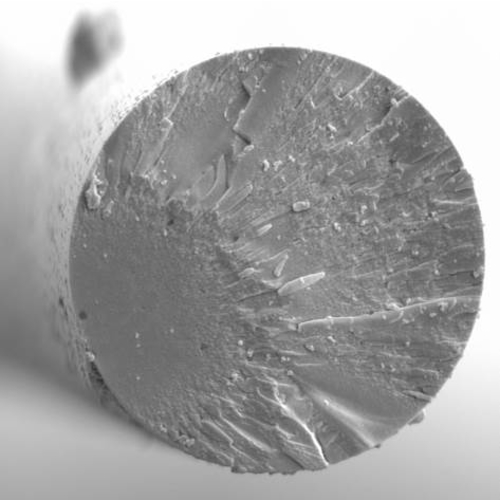
No. 1 most downloaded original paper from Composites Part A
